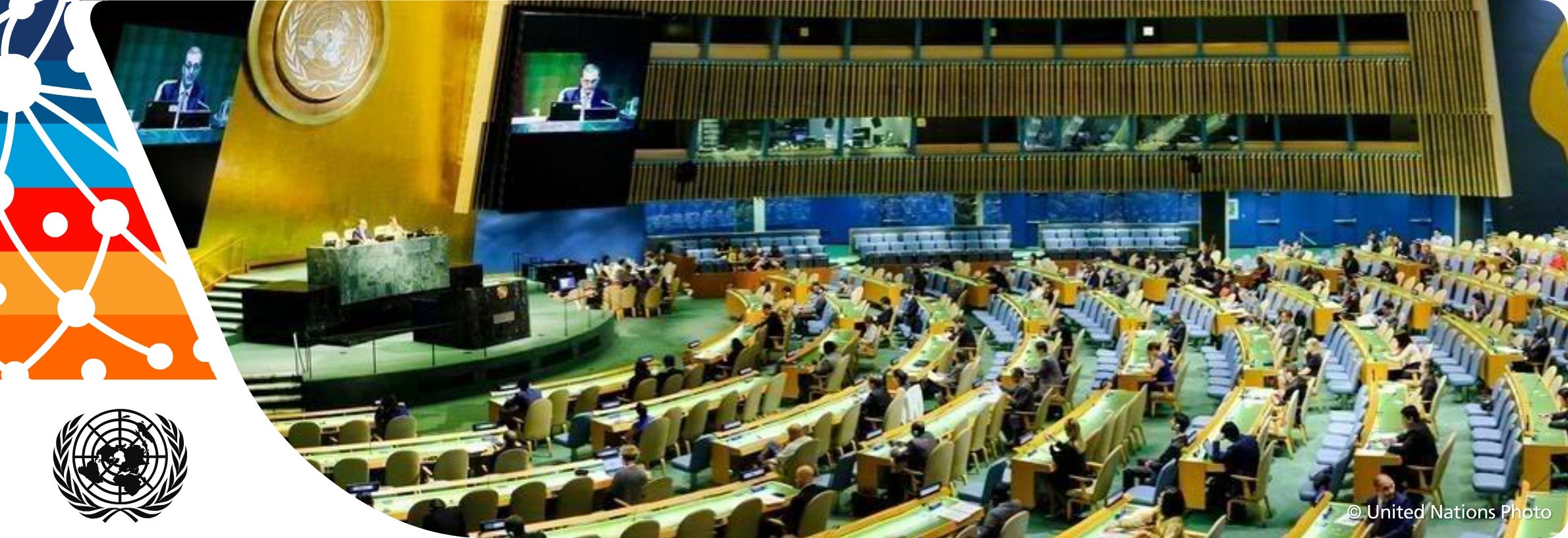The United Nations
With 193 member states, the United Nations Organization (UN) is unmatched by any other organization in terms of the subjects it deals with, its members, its involvement in decision-making processes, in creating international norms and standards and its unrivalled international presence. Despite certain challenges, it enjoys a unique legitimacy throughout the world.

Switzerland joined the UN in 2002 and contributes actively to finding innovative solutions to global problems related to issues such as security, peace, combating poverty, promoting human rights and safeguarding natural resources.
Geneva is the main seat of the United Nations in Europe and, with New York, is one of the two major centres of multilateral cooperation. Despite Switzerland's relatively small size, thanks to «International Geneva» the Confederation is able to «box above its weight» in the international arena, making it that much easier to achieve foreign policy objectives.
Direct access to the UN website https://www.un.org/en/
